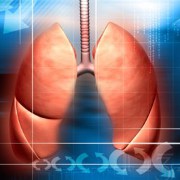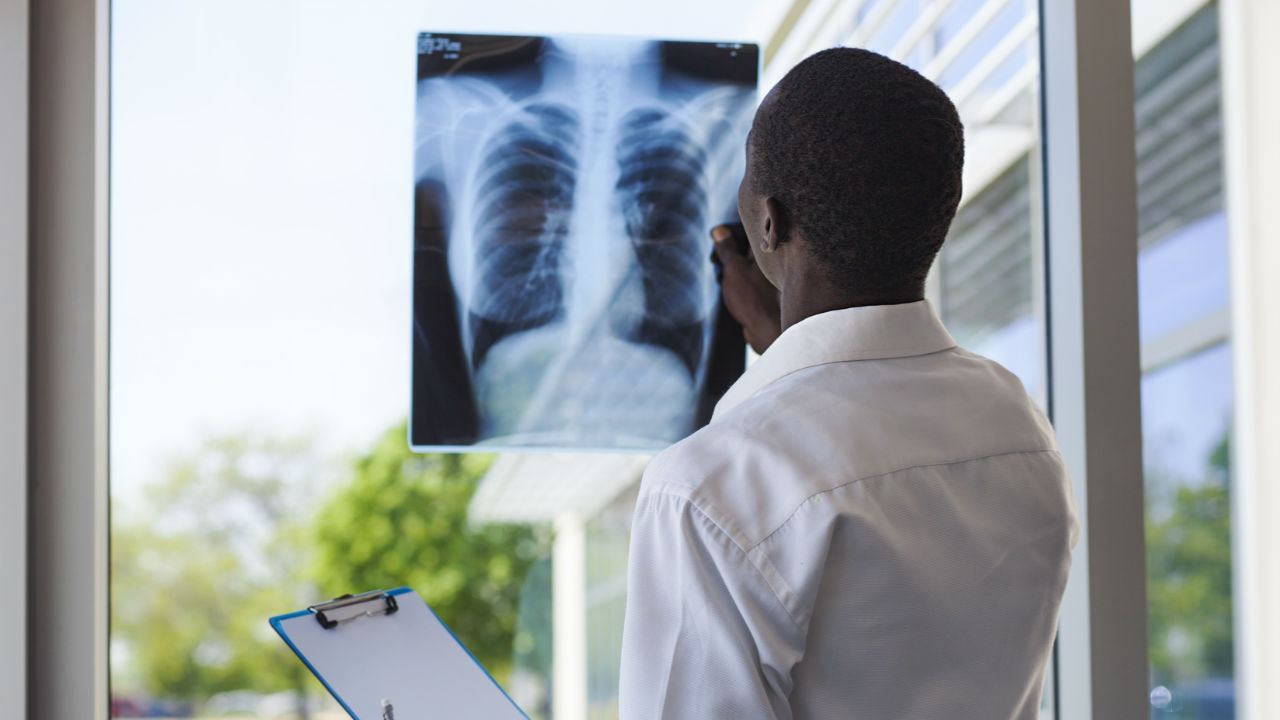 Photo: Getty Images
Photo: Getty Images
If you are concerned about your lung cancer risk or there is a reason to think you may have lung cancer, your doctor can order a number of diagnostic tests to look for cancer cells and rule out other possible conditions.
Your doctor may recommend imaging tests, sputum cytology or a tissue sample, called a biopsy.
Imaging Tests. There are two types of imaging tests for lung cancer.
- X-ray images taken of the lungs in which the doctor will look for any abnormal mass or nodule.
- A low-dose computed tomography (CT) test may be able to detect lesions in your lungs that are too small to be detected by X-ray. A recent large national study suggests CT scans could prevent lung cancer deaths by catching the lung cancer at its earliest stage when it is more easily treated.
While diagnostic imaging tests are a modern breakthrough in detecting lung cancer, there are some caveats. In the national study published in the New England Journal of Medicine, the CT scan and X-ray each failed to detect small-cell lung cancer, a very aggressive tumor that grows in the tissues of the lung. The study also revealed a few minor adverse complications that were associated with the screenings.
Be sure to discuss these issues with your doctor. Together you can determine strategies to reduce your risk and decide whether screening tests are appropriate for you.
Sputum cytology. If you have a mucus-producing cough, your healthcare provider may order this test which looks at the mucus (sputum) under a microscope to see if abnormal cells are present. A sputum cytology may be done to help detect certain noncancerous lung conditions or when lung cancer is suspected.
Tissue sample collection (biopsy). A biopsy, in which a tissue sample is collect and analyzed for abnormal cells, can be performed several ways:
- A bronchoscopy is an examination of abnormal areas of your lungs using a lighted tube that's passed down your throat and into your lungs. During this process, your doctor may also collect a sputum sample.
- During a mediastinoscopy procedure, an incision is made at the base of your neck, and surgical tools are inserted behind your breastbone to take tissue samples from lymph nodes.
- A needle biopsy is performed by your doctor using X-ray or CT images to guide a needle through your chest wall and into the lung tissue to collect suspicious cells. A biopsy sample may also be taken from lymph nodes or other areas where cancer has spread.
If lung cancer is been diagnosed, your doctor will work to determine the degree, called stage, of your cancer. Your cancer's stage will help you and your doctor decide what treatment is most appropriate.
Lynette Summerill, an award-winning writer and scuba enthusiast lives in San Diego, CA with her husband and two beach loving dogs. In addition to writing about cancer-related issues for EmpowHER, her work has been seen in newspapers and magazines around the world.
Sources and Patient Information:
University of Maryland Medical Center. Non-small cell lung cancer diagnostic tests. 2011. Patient information available online: http://www.umm.edu/patiented/articles/what_tests_used_diagnose_stage_track_non-small_cell_lung_cancer_000072_6.htm
National Cancer Institute. NIH-funded study shows 20 percent reduction in lung cancer mortality with low-dose CT compared to chest X-ray. 29 June 2011. Accessed online 6 February, 2012 at: http://www.cancer.gov/newscenter/pressreleases/2011/NLSTprimaryNEJM http://www.cancer.gov/cancertopics/screening/lung Cancer
National Cancer Institute. Lung Cancer. Accessed online at: http://www.cancer.gov/cancertopics/types/lung
Reviewed February 14, 2012
by Michele Blacksberg RN
Edited by Jody Smith






Add a CommentComments
There are no comments yet. Be the first one and get the conversation started!